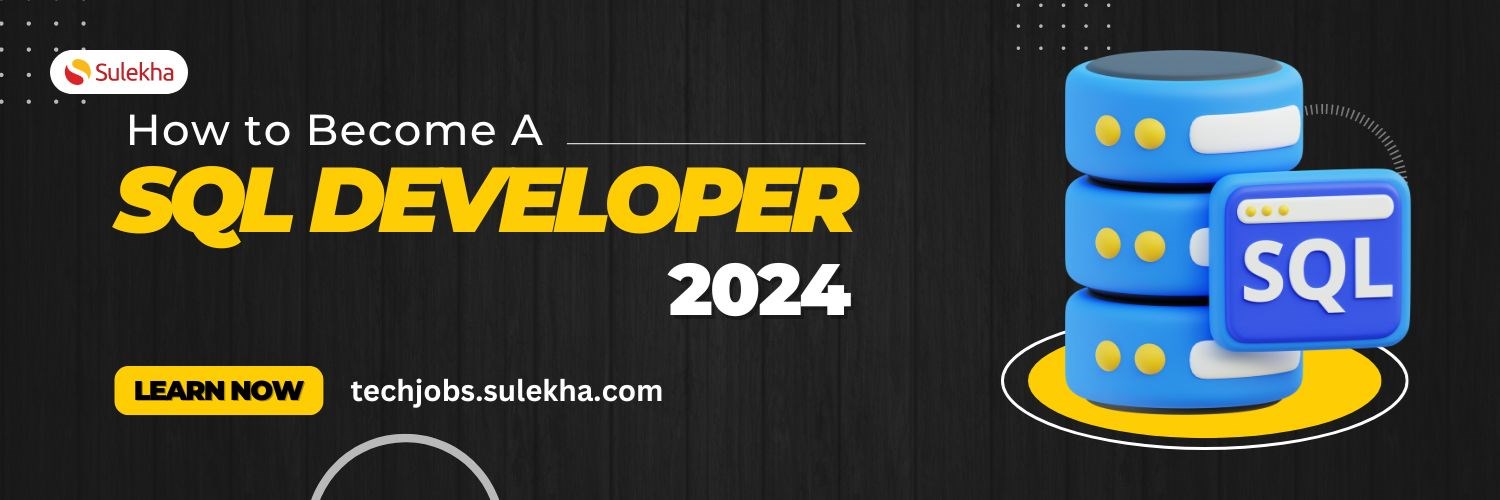Introduction to Databases (SQL)

What is SQL?
SQL, known as structured query language, is a standardized relational database that helps store, manipulate, manage, and retrieve data. Data is stored in a table in rows and columns.
Key concepts of SQL
Some key concepts of the SQL are:
Tables: A table is a basic structure in a database in SQL, a relational database. It has rows or records and columns or fields.
Schema: A schema is a blueprint of SQL. A schema will have clearly defined rows, columns, data types, and relations between all the variables.
Primary key: A primary key differentiates between each row. It is a unique identifier. The primary key also ensures that two rows do not have the same key.
Foreign key: A foreign key helps to reference a primary key of another table and establishes a relationship between them. The foreign key helps to establish a unified view of the data.
Basic SQL commands
Let us understand basic SQL commands
DDL – Data Definition Language: A data definition language defines the database schema. The DDL deals with the database description, and the command can create and modify the structure.
DQL—Data Query Language: A data query language helps perform operations on data within the schema. The SELECT statement imposes orders on data to get the data out.
DML – Data Manipulation Language: The data manipulation language command controls the
DCL – Data Control Language: A data control language that deals with database controls, rights, and permissions. The primary commands for controlling the database are GRANT and REVOKE.
TCL – Transaction Control Language: The transaction control language groups tasks into a single execution command. The TCL process ends when the transaction is completed. If the execution fails, the transaction fails.
Best practices of SQL
Let us s some best practice working with SQL and why should we work with this amazing database Let’s.
Data management: SQL is a standard language to access, manage ad retrieve the data from relational database. SQL is efficient in data querying, filtering, and analysis without manually examining larger data sets.
Data analysis: SQL can be integrated into several data analytical tools to provide a comprehensive view of the data. SQL also helps to extract insights from data and make meaningful data-driven decisions for business, research purpose.
Big data compatibility: SQL can wok with large data sets, hence is convenient to work with big data. SQL can manage and manipulate large data sets. SQL is flexible and scalable.
Standardization: SQL is a universal language and can be implemented across various databases. The skills can be transferred across working on various databases.
Longevity: The SQL was around since a decade and has become very popular. SQL is a critical tool in database management and will remain to be so for more years. Hence, the knowledge gained on SQL will have a longer validity.
Application of SQL in various industries
Manufacturing and supply chain: SQL tracks inventory and stock levels and optimises supply chain operations. SQL helps in production data analysis. The data can be related to machine performance, quality of the output, and schedule maintenance. SL can also analyze logistics data, deliver tracking, etc.
Telecommunications: SQL helps analyze customer data, call record data, network infrastructure, and performance metrics.
Education: SQL helps manage student records and attendance, stores academic research data, and supports learning management systems (Moodle and Blackboard).
Finance and Banking: SQL can manage financial transactions, banking operations, and customer transactions. Financial institutions leverage SQL for risk analysis, fraud detection and compliance monitoring. SQL can help create financial metrics, generate financial reports, etc.
Healthcare: SQL helps store patient data, including medical records, test results, etc. SQL is useful in conducting healthcare analytics by analyzing patient treatment records and medical histories and helping in predictive analytics (for diseases). Healthcare analytics improve patient outcomes. SQL databases also help healthcare providers comply with HIPPA.
Business intelligence: SQL empowers several business intelligence tools, such as Tableau, Power BI, etc., which generate visually appealing reports based on database queries.
Conclusion: SQL is in demand, and learning the SQL will help you get excellent career opportunities. Enroll in our SQL course to reap the benefits.
Find a course provider to learn SQL Developer
Java training | J2EE training | J2EE Jboss training | Apache JMeter trainingTake the next step towards your professional goals in SQL Developer
Don't hesitate to talk with our course advisor right now
Receive a call
Contact NowMake a call
+1-732-338-7323Enroll for the next batch
sql server developer course
- Jan 21 2026
- Online
sql server developer course
- Jan 22 2026
- Online
sql server developer course
- Jan 23 2026
- Online
Related blogs on SQL Developer to learn more

How to Become an SQL Developer?
Explore the career journey of becoming an SQL developer, including educational requirements, essential skills, and strategies for gaining hands-on experience in database programming and management.

Top Ten Preferences You Must Tweak When Using SQL Developer
A free integrated development environment, The Oracle SQL Developer simplifies the development & management of the Oracle Database in traditional as well as Cloud deployments. The SQL Developer provides total end-to-end development of all your PL/SQL
Latest blogs on technology to explore

Drug Safety & Pharmacovigilance: Your 2026 Career Passport to a Booming Healthcare Industry!
Why This Course Is the Hottest Ticket for Science Grads & Healthcare Pros (No Lab Coat Required!)" The Exploding Demand for Drug Safety Experts "Did you know? The global pharmacovigilance market is set to hit $12.5B by 2026 (Grand View Research, 202

Launch Your Tech Career: Why Mastering AWS Foundation is Your Golden Ticket in 2026
There’s one skill that can open all those doors — Amazon Web Services (AWS) Foundation

Data Science in 2026: The Hottest Skill of the Decade (And How Sulekha IT Services Helps You Master It!)
Data Science: The Career that’s everywhere—and Nowhere Near Slowing Down "From Netflix recommendations to self-driving cars, data science is the secret sauce behind the tech you use every day. And here’s the kicker: The U.S. alone will have 11.5 mill

Salesforce Admin in 2026: The Career Goldmine You Didn’t Know You Needed (And How to Break In!)
The Salesforce Boom: Why Admins Are in Crazy Demand "Did you know? Salesforce is the 1 CRM platform worldwide, used by 150,000+ companies—including giants like Amazon, Coca-Cola, and Spotify (Salesforce, 2025). And here’s the kicker: Every single one

Python Power: Why 2026 Belongs to Coders Who Think in Python
If the past decade was about learning to code, the next one is about coding smarter. And in 2026, the smartest move for any IT enthusiast is learning Python — the language that powers AI models, automates the web, and drives data decisions across ind

The Tableau Revolution of 2025
"In a world drowning in data, companies aren’t just looking for analysts—they’re hunting for storytellers who can turn numbers into decisions. Enter Tableau, the #1 data visualization tool used by 86% of Fortune 500 companies (Tableau, 2024). Whether

From Student to AI Pro: What Does Prompt Engineering Entail and How Do You Start?
Explore the growing field of prompt engineering, a vital skill for AI enthusiasts. Learn how to craft optimized prompts for tools like ChatGPT and Gemini, and discover the career opportunities and skills needed to succeed in this fast-evolving indust

How Security Classification Guides Strengthen Data Protection in Modern Cybersecurity
A Security Classification Guide (SCG) defines data protection standards, ensuring sensitive information is handled securely across all levels. By outlining confidentiality, access controls, and declassification procedures, SCGs strengthen cybersecuri

Artificial Intelligence – A Growing Field of Study for Modern Learners
Artificial Intelligence is becoming a top study choice due to high job demand and future scope. This blog explains key subjects, career opportunities, and a simple AI study roadmap to help beginners start learning and build a strong career in the AI

Java in 2026: Why This ‘Old’ Language Is Still Your Golden Ticket to a Tech Career (And Where to Learn It!
Think Java is old news? Think again! 90% of Fortune 500 companies (yes, including Google, Amazon, and Netflix) run on Java (Oracle, 2025). From Android apps to banking systems, Java is the backbone of tech—and Sulekha IT Services is your fast track t